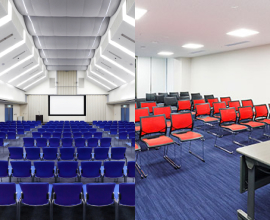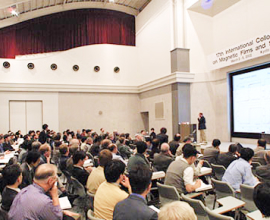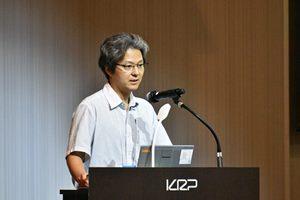2019/01/10(木)
Pitch 3-5 :Stop snoring for bedpartners
|
CEO, MaRI Co., Ltd. |
[Summary]
Just about everyone snores occasionally, and it's usually not something to worry about. But if you regularly snore at night, it can disrupt the quality of your sleep, thus, leading to daytime fatigue, irritability, and increased health problems. And if your snoring keeps your partner awake, it can create major relationship problems too. Thankfully, sleeping in separate bedrooms isn't the only remedy for snoring.
In the United States, there are about 73 million normal adults with chronic snoring. In addition, 51% of the bed partners are living with snorers accounting for 37 million or even more. Snoring is clearly a large source of problem. The existing solutions to stop snoring include surgery, CPAP or wearing some mask and nasal attachment, neck attachment, and so on.
Based on a research outcome of a project at Stanford Biodesign, the Tohuku University focused on this area of finding a permanent solution to snoring. The start-up was named as MaRI that involved non-contact stimulation. Stimulation to a snorer was found to stop snoring. So, the device first detects snoring sound, and then stimulation is applied to the snorer, which leads to shallow sleep condition. This finally stops the snoring. The current market price of this device is set at $300, which has a potential market size of 2.2 billion dollars or even more.
Now, the university researchers focus on developing a kind of solution that can decrease the impact of snoring without behavioral modification.
[Mentors' comments]
"You talk about a very interesting topic, the sleep problem. Thinking about that, actually the victim is not only about the partner of the snorer, but it's also about the snorer themselves. How does your technology can help improve the sleep quality of the snorer?"Dr. Dan Wang, Johnson & Johnson Innovation
"I think it's very noble to save marriages. I wondered if this would have any impact on people who have mild sleep apnea, who also tend to snore."Dr. Kevin Grimes, Stanford University
[Profile]
Dr. Taki received the M.D. and Ph.D. degrees in informatics from Kyoto University, Kyoto, Japan, in 2000 and 2007, respectively. He was Associate Professor at Tohoku University until Oct. 2017, and founded MaRI Co. Ltd. at Nov. 2017. He is currently CEO of MaRI Co., Ltd.






















 Hirofumi Taki
Hirofumi Taki